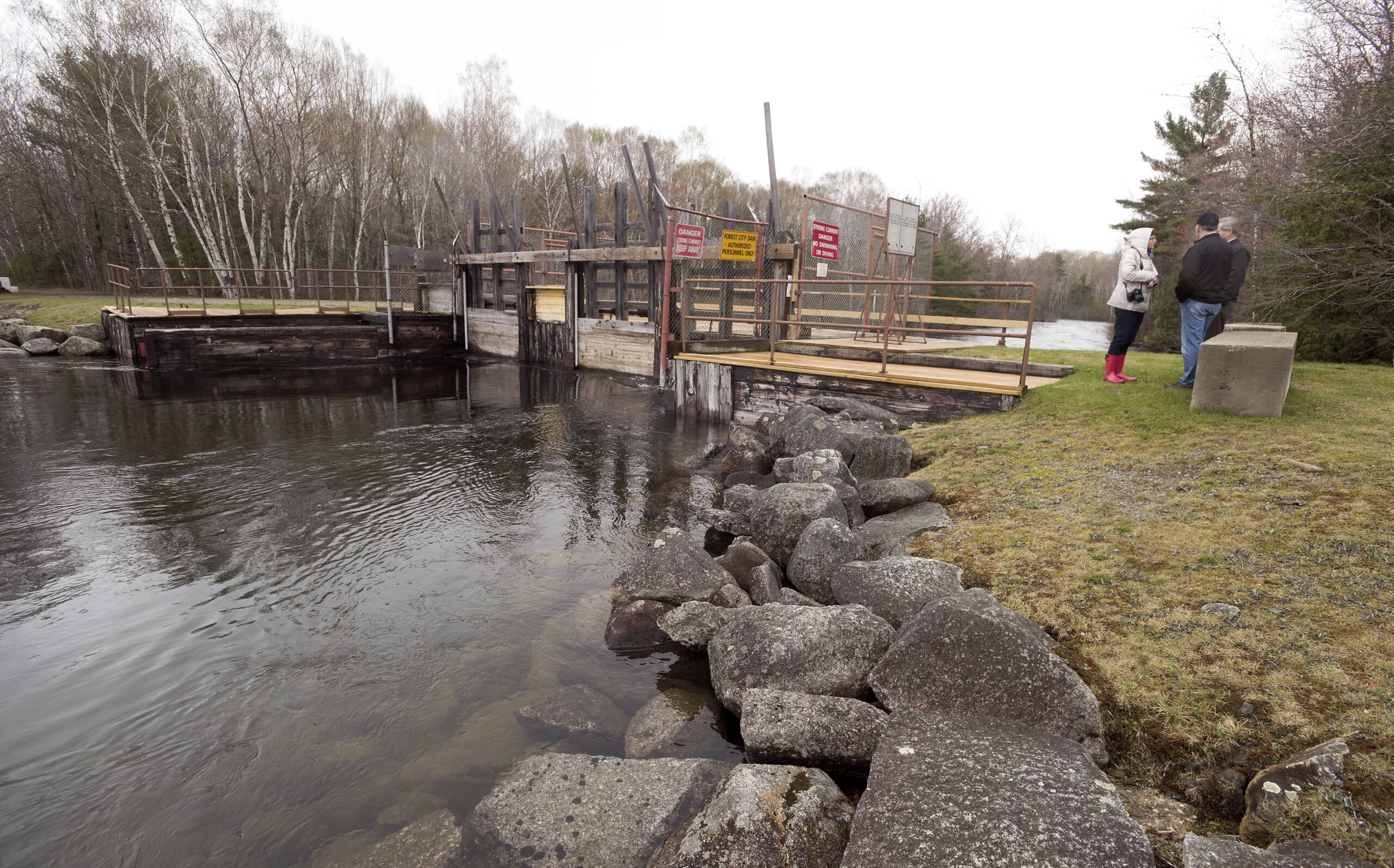
ORIENT, Maine — Residents on both sides of the border are watching preliminary discussions between parties involved with the future of the Forest City hydroelectric dam on East Grand Lake.
Gov. Janet Mills and and Blaine Higgs, the premier of New Brunswick, sent a proposal to Kimberly D. Bose, secretary of the Federal Energy Regulatory Commission, on Oct. 2. The letter was in response to an August meeting in Danforth to hear information and discuss a Baileyville pulp mill’s controversial proposal to abandon a dam it owns.
In late 2016, Woodland Pulp asked the Federal Energy Regulatory Commission for permission to surrender its license to operate the Forest City hydroelectric dam on East Grand Lake. The company said the cost of maintaining and operating the dam outweighs the benefit of using the electricity it generates.
In the letter, Mills and Higgs proposed that the U.S. and Canadian sides of the dam be owned and operated by an independent third party which will operate the dam to achieve fisheries, recreation, flood control and dam safety objectives while addressing FERC’s concerns regarding the production of hydroelectric power at Woodland Pulp’s facilities located downstream.
According to the letter, the state also will work with a hydroelectric consulting firm, which will study historic water flow and power generation data from the Forest City Dam and use that data to produce an operational plan that will satisfy FERC’s concerns and ensure that the public policy benefits of the dam can continue.

More than 100 residents from Maine and Canada packed into East Grand High School in Danforth on Wednesday, August 28, 2019, to hear information and discuss a controversial proposal by a Baileyville pulp mill to abandon a dam it owns. In late 2016, Woodland Pulp asked the Federal Energy Regulatory Commission for permission to surrender its license to operate the Forest City hydroelectric dam on East Grand Lake.
(Courtesy of Ryan D. Pelletier)
In response to the filing by these two governments, Woodland Pulp submitted a request to FERC on Oct. 9 asking that its license surrender proceeding and its rehearing request not be acted upon while the province of New Brunswick and the state more fully develop their ownership and operational proposal for submission to the commission.
It is anticipated that the details of this proposal will be submitted to FERC in March of next year.
David Townsend, president of the Chiputneticook Lakes International Conservancy, said in a statement that “these developments have good potential to produce a long-term solution for the Forest City Dam.”
Residents, tourists, camp and business owners in the East Grand Lake area say surrendering the license for the dam would destroy the economy of the area, and that the dam is crucial to maintaining the water levels. They fear surrendering the license could the lake water down 6 feet or more.
East Grand Lake is a nearly 16,000-acre waterbody on the international border between Maine and New Brunswick.
Woodland Pulp officials have maintained that the federal agency’s requirements for operating the dam would cost the company $6 million more than it would make from any power generation during the 30-year life of the dam license, which was renewed in 2015.







